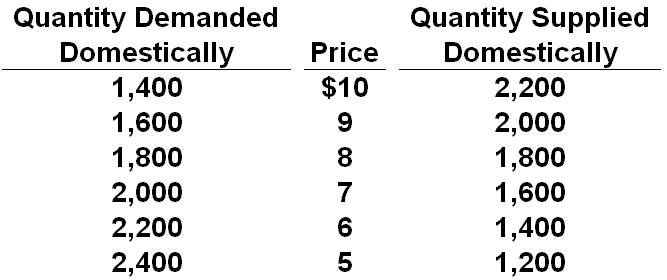In the specificfactors model, suppose that a country has a comparative advantage in manufacturing output. Will workers be better or worse off following the opening of trade with other countries?
a. Workers will be better off because the nominal wage increases.
b. Workers will be better off because both nominal and real wages increase.
c. Workers may be better off or worse off because the real wage in terms of the agricultural good rises and the real wage in terms of the manufactured good falls.
d. Workers may be better off or worse off because the real wage in terms of the agricultural good falls and the real wage in terms of the manufactured good rises.
Answer: c. Workers may be better off or worse off because the real wage in terms of the agricultural good rises and the real wage in terms of the manufactured good falls.
You might also like to view...
A bakery that produces 100 loaves of bread has a variable cost of $50 and a fixed cost of $200. Calculate the total cost, average total cost, average variable cost, and average fixed cost of the bakery
What will be an ideal response?
What is one problem with trying to regulate a monopoly's price?
A) The government needs information on the monopoly's marginal cost. B) The government needs information on the price people are willing to pay. C) The government needs to identify which firm is a monopolist. D) Anything that the government does is problematic.
Whenever there is strong heteroskedasticity, it is preferable to use OLS rather than WLS, which may use a possibly misspecified variance function
Answer the following statement true (T) or false (F)
Refer to the table below for a certain product's market in Econland. If the world price for this product were $6, then Econland would import:

A. 400 units and domestic producers would supply 1,400
B. 800 units and domestic producers would supply 1,400
C. 800 units and domestic producers would supply 2,200
D. 400 units and domestic producers would supply 2,200